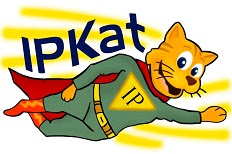
Sony, la marca más amada en México

A pesar de la depresión en el consumo, el 75% de los ejecutivos mexicanos ubica a Sony como la marca líder en electrónicos, según el estudio Las mejores marcas en México de HSM y Millward Brown.
El ranking presentado revela que según 9,901 entrevistas aplicadas por HSM y Millward Brown a ejecutivos y consumidores mexicanos, las mejores marcas asentadas en el país, tomando en cuenta 21 categorías comerciales, son: Sony, con 75% de las respuestas, seguida por Sabritas (57%), Coca-Cola (54%), Johnnie Walker (51%). Dichas marcas son reconocidas gracias a que mantienen un fuerte vínculo con sus consumidores.
Asimismo, el estudio destaca el top 3 de las marcas con mayor impulso: Apple, Starbucks y Iphone.
En el análisis se estudiaron 310 marcas de 21 categorías en base a la relación del consumidor y su lealtad. Las 10 primeras pueden verse aquí.
El ranking presentado revela que según 9,901 entrevistas aplicadas por HSM y Millward Brown a ejecutivos y consumidores mexicanos, las mejores marcas asentadas en el país, tomando en cuenta 21 categorías comerciales, son: Sony, con 75% de las respuestas, seguida por Sabritas (57%), Coca-Cola (54%), Johnnie Walker (51%). Dichas marcas son reconocidas gracias a que mantienen un fuerte vínculo con sus consumidores.
Asimismo, el estudio destaca el top 3 de las marcas con mayor impulso: Apple, Starbucks y Iphone.
En el análisis se estudiaron 310 marcas de 21 categorías en base a la relación del consumidor y su lealtad. Las 10 primeras pueden verse aquí.








.jpg)



















